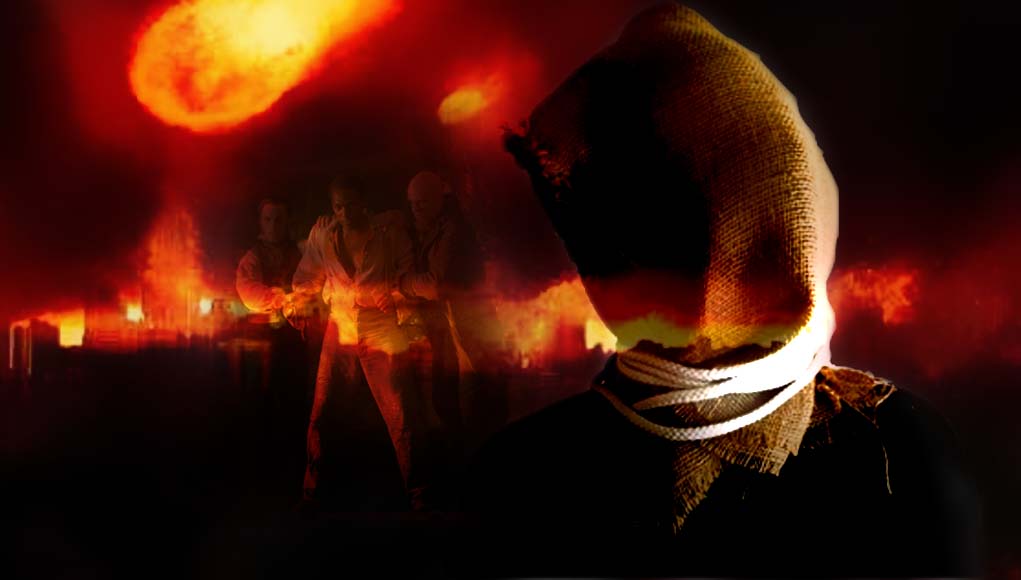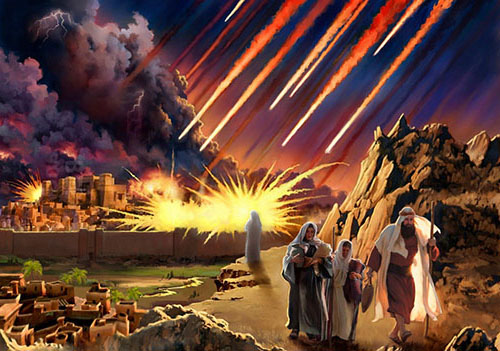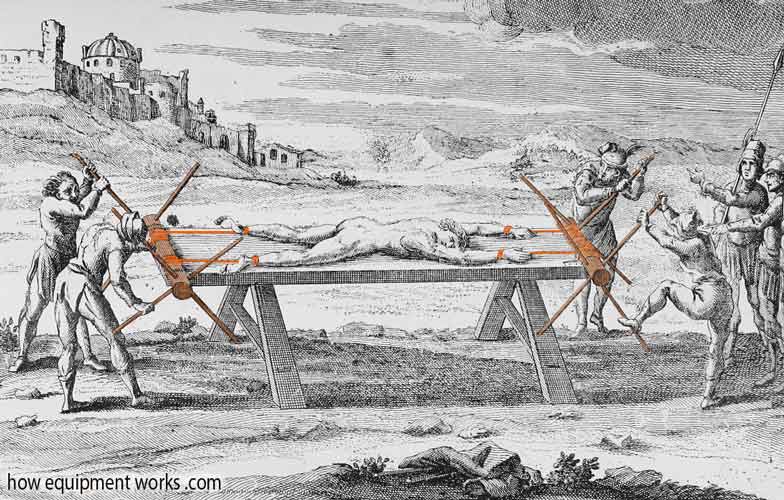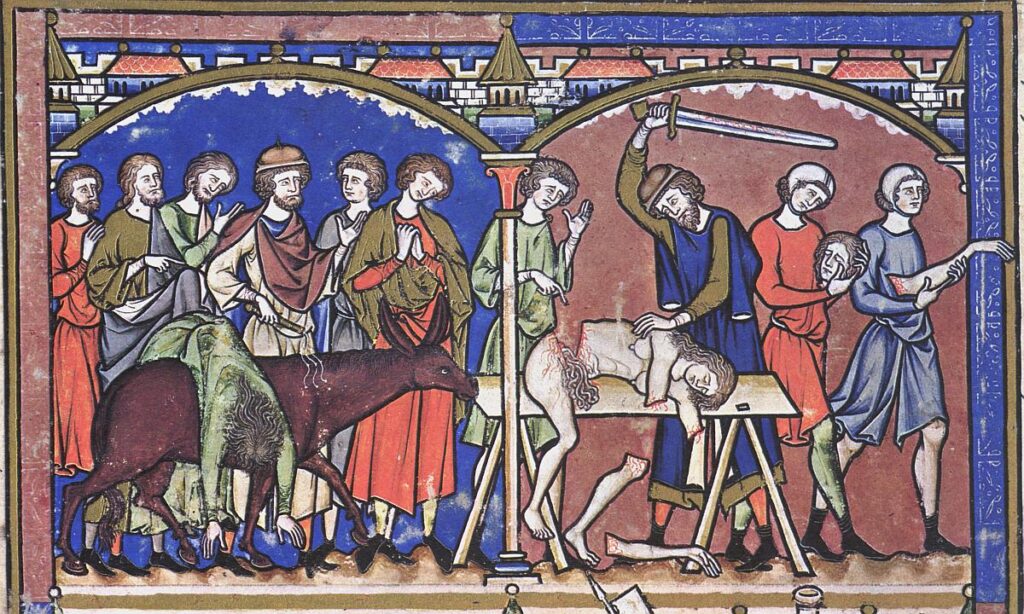The Great Gay Debate… The Damned Homosexuals
The debate surrounding homosexuality and its perceived condemnation remains a highly contentious issue among churches, religious followers, and even within the government. These discussions often revolve around biblical interpretations, particularly verses such as Leviticus 18:22: “Thou shalt not lie with mankind, as with womankind: it is abomination.” As a result, many condemn homosexuality, sometimes focusing solely on it as a sin above others.
In response, some churches, camps, and programs have been established with the goal of “praying the gay away,” based on the belief that homosexuality is not innate but rather the result of demonic possession or personal choice. Additionally, some argue that God despises homosexuality, citing the destruction of Sodom and Gomorrah as divine punishment for such behavior. Common phrases like “God made Adam and Eve, not Adam and Steve” and “Man is meant to be fruitful and multiply” are used to argue that homosexuality contradicts nature, and therefore, defies God’s design.
Now, let us examine these references in their full context to uncover the truth of these matters and discern what God truly says about them.
Before we examine the scriptures, it’s important to clarify a key distinction: there is a significant difference between being gay and being a homosexual.
The term homosexual originated in the English language in the 19th century and is used to describe someone who engages in sexual relations with the same gender. Because the word itself contains “sex,” the emphasis is often placed on the act of sex. However, many people labeled as homosexual may choose not to engage in sexual acts for various reasons, such as personal convictions, lack of desire, concerns about disease, or societal pressures.
In contrast, the word gay refers to a person who experiences romantic or emotional attraction toward the same gender. The term has much older roots, dating back to before the 14th century in archaic French. Interestingly, when translated into Hebrew, gay corresponds to the term homo, meaning “same” or “uniform.” The concept of homogenization refers to making something uniform or blending diverse elements into one. By contrast, reverse homogenization separates a uniform structure into distinct parts.
A biblical example of these concepts can be seen in the creation of Adam and Eve. In the beginning, God created Adam alone—there was no Adam and Eve or Adam and Steve, only Adam and God. Genesis 2:7 states:
“And the Lord God formed man of the dust of the ground, and breathed into his nostrils the breath of life; and man became a living soul.”
Adam existed as a singular being (homogenized), fulfilling the role God assigned to him. However, God declared that it was not good for man to be alone and decided to create a suitable helper. After forming all the animals, none were found to be an appropriate companion. Then, in Genesis 2:21-22:
“And the Lord God caused a deep sleep to fall upon Adam, and he slept: and he took one of his ribs, and closed up the flesh instead thereof; And the rib, which the Lord God had taken from man, made he a woman, and brought her unto the man.”
Here, God took a part of Adam and made it into a separate being—this is reverse homogenization, where one uniform structure was divided into two distinct parts. Yet, in Genesis 2:24, the two were meant to reunite:
“Therefore shall a man leave his father and his mother, and shall cleave unto his wife: and they shall be one flesh.”
This represents re-homogenization, where the two distinct parts come together again as one. If God originally made one and then separated it into two, is He not also capable of placing the balance of two within one, just as it was in the beginning?




By definition, eunuchs were individuals who, for various reasons—biological or social—did not engage in traditional heterosexual relationships. In today’s terms, this could be compared to those who identify as gay or homosexual, as society often labels individuals based on their deviation from expected norms of attraction and procreation.
What Does God Say About Eunuchs?
Rather than condemning eunuchs, God acknowledges and honors them:
Isaiah 56:4-5
“For thus saith the Lord unto the eunuchs that keep my sabbaths, and choose the things that please me, and take hold of my covenant; Even unto them will I give in mine house and within my walls a place and a name better than of sons and of daughters: I will give them an everlasting name, that shall not be cut off.”
This passage shows that God values those who are faithful to Him, regardless of their status or ability to procreate. He promises them a place of honor, even greater than that of traditional family lineage.
Acts 8:36-38
“And as they went on their way, they came unto a certain water: and the eunuch said, See, here is water; what doth hinder me to be baptized? And Philip said, If thou believest with all thine heart, thou mayest. And he answered and said, I believe that Jesus Christ is the Son of God. And he commanded the chariot to stand still: and they went down both into the water, both Philip and the eunuch; and he baptized him.”
This account reinforces that eunuchs were fully accepted into the faith. God and The Bible does not condemn eunuchs—instead, God acknowledges their existence, grants them a place of honor, and welcomes them into His covenant.
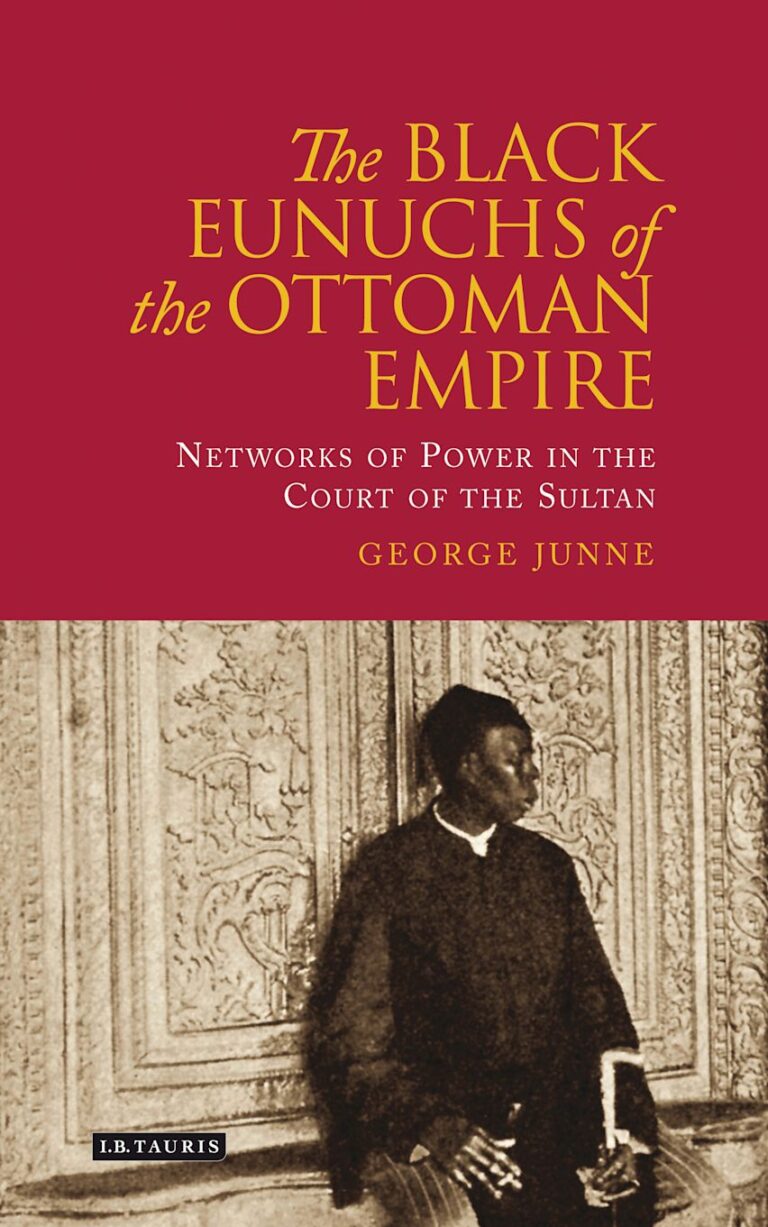
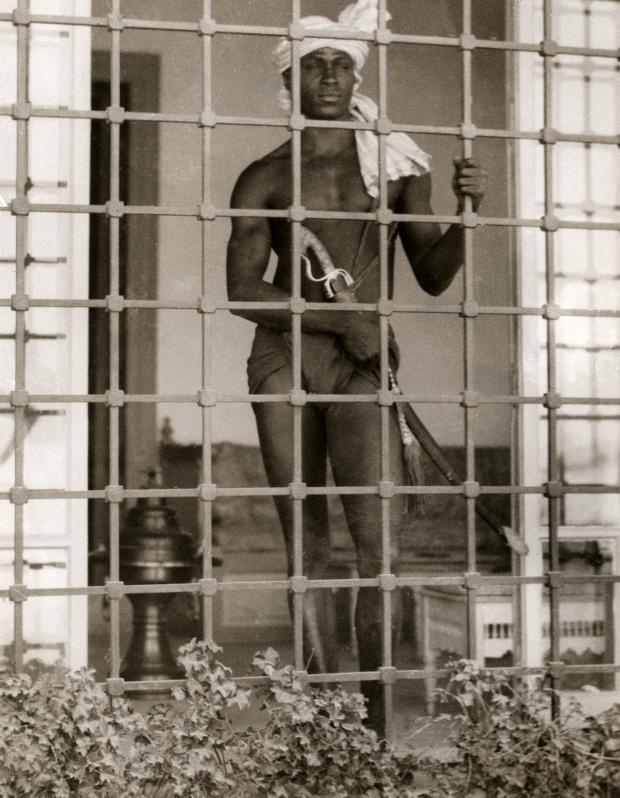

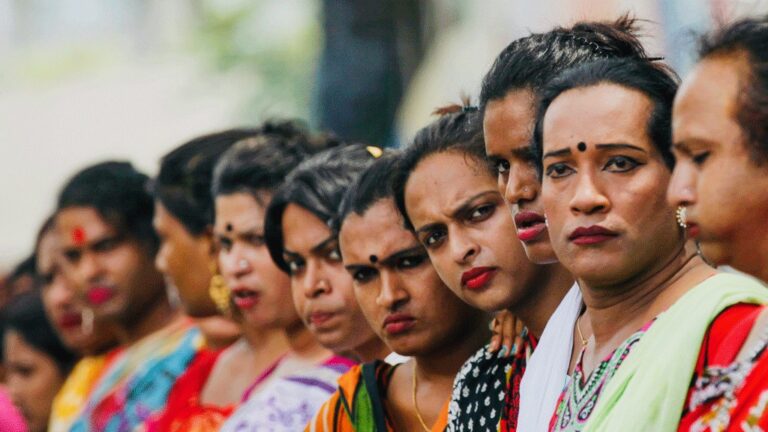
Born That Way
The term gay describes the natural disposition of a person such as a eunuch. In Matthew 19:11-12, Jesus speaks about different types of eunuchs:
Matthew 19:11-12
“But he said unto them, All men cannot receive this saying, save they to whom it is given. For there are some eunuchs, which were so born from their mother’s womb: and there are some eunuchs, which were made eunuchs of men: and there be eunuchs, which have made themselves eunuchs for the kingdom of heaven’s sake. He that is able to receive it, let him receive it.”
Understanding Eunuchs
Historically, the term eunuch referred to men who had been castrated, usually at a young age, which affected their hormonal development. However, in ancient texts, the term was also used to describe men who were impotent, celibate, or simply not inclined to marry and have children.
Eunuchs were often employed in royal courts and harems as servants or guards because they were considered trustworthy and had no personal ties to aristocratic families. Many societies believed eunuchs lacked the same desires and ambitions as other men, making them more reliable in certain roles. The Byzantine Emperor Leo VI even banned eunuchs from marrying in the 9th century, reinforcing the idea that they were not meant for traditional male-female relationships.
What About Sodom and Gomorrah?
Many people believe that Sodom and Gomorrah were destroyed solely because of homosexuality, but the Bible provides a much broader explanation of their wickedness.
What Does the Bible Say?
Ezekiel 16:48-50 clearly outlines the sins of Sodom:
Ezekiel 16:48-50
“As I live, saith the Lord God, Sodom thy sister hath not done, she nor her daughters, as thou hast done, thou and thy daughters. Behold, this was the iniquity of thy sister Sodom: pride, fullness of bread, and abundance of idleness was in her and in her daughters, neither did she strengthen the hand of the poor and needy. And they were haughty, and committed abomination before me: therefore I took them away as I saw good.”
This passage highlights pride, greed, laziness, mistreatment of the poor, arrogance, and abominations as the key reasons for their destruction. There is no mention of homosexuality as the primary sin.
What Does the Book of Jasher Say?
The Book of Jasher (or Sefer haYashar), an ancient text referenced in Joshua and 2 Samuel, gives additional insight into the extreme wickedness of Sodom and Gomorrah. Chapter 19 describes how these cities were brutal, inhumane, and merciless, particularly toward the poor and outsiders.
Examples of Their Wickedness:
- A poor man was secretly given food. When the people found out, they burned alive the woman who helped him.
- A traveler was given food and water by a kind young woman. As punishment, the people covered her in honey and let bees sting her to death.
These laws didn’t just permit evil—they punished kindness.
The Truth About “Bedding” in Sodom and Gomorrah
Many people focus on the attempted assault of Lot’s angelic guests as proof that Sodom’s sin was homosexuality. Genesis 19
4 But before they lay down, the men of the city, even the men of Sodom, compassed the house round, both old and young, all the people from every quarter:
5 And they called unto Lot, and said unto him, Where are the men which came in to thee this night? bring them out unto us, that we may know them.
However, the Book of Jasher explains that “bedding” was a cruel form of torture and humiliation used against outsiders, not an act of love or attraction.
Jasher 19:3-7 describes their sadistic practice:
- The cities had special torture beds in the streets.
- If a man arrived in town, the people would force him onto a bed.
- If he was too short, they would stretch him until he nearly died.
- If he was too tall, they would crush him until he was near death.
- When victims cried out for help, the people mocked them, saying, “Thus shall it be done to a man that cometh into our land.”
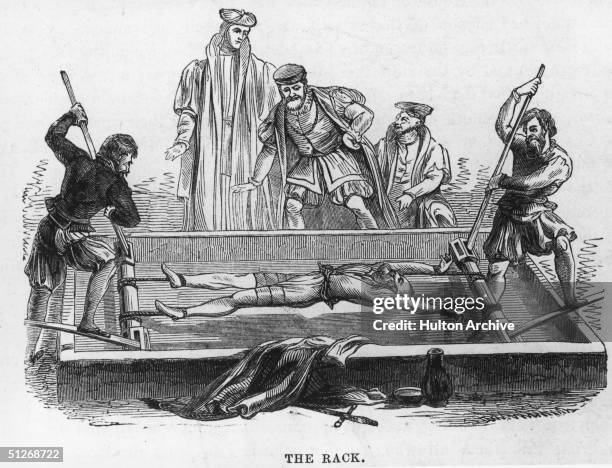
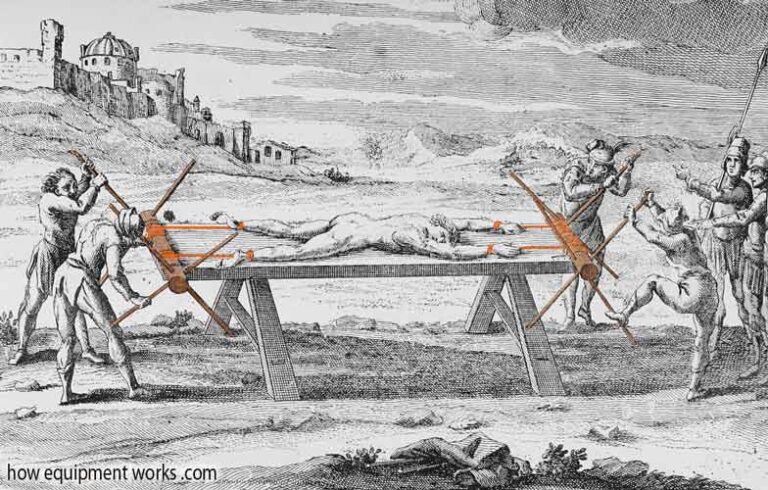
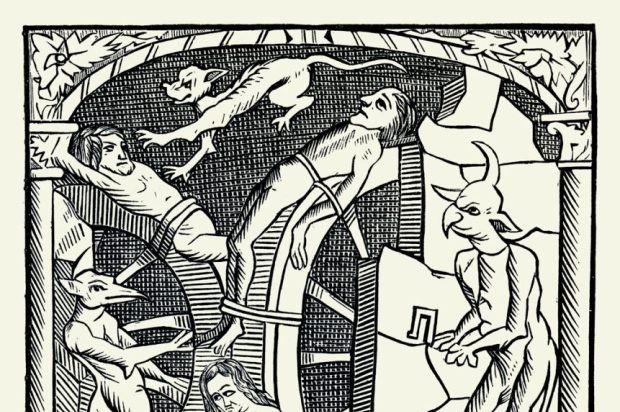
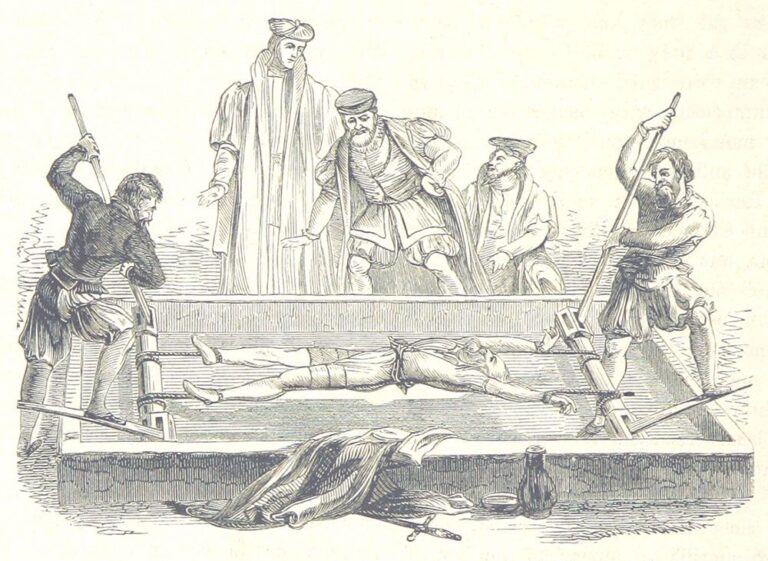
This was not about sexual desire—it was about power, cruelty, and humiliation.
Why Did God Destroy Sodom and Gomorrah?
The wickedness of these cities went far beyond one sin. They were corrupt, heartless, and completely devoid of mercy. Their actions provoked God’s judgment, as Jasher 19:44 states:
Jasher 19:44
“And the Lord was provoked at this and at all the works of the cities of Sodom, for they had abundance of food, and had tranquility amongst them, and still would not sustain the poor and the needy, and in those days their evil doings and sins became great before the Lord.”
This perfectly aligns with Ezekiel 16:48-50, showing that their destruction was due to their pride, greed, oppression of the poor, and extreme wickedness—not simply because of homosexuality.
Sodom and Gomorrah were destroyed because they were a lawless, merciless society that thrived on cruelty and injustice. The idea that their downfall was solely due to homosexuality is an oversimplification that ignores the full biblical and historical context.
The real lesson from Sodom and Gomorrah is that God despises oppression, injustice, and a lack of compassion—and that when a society reaches a certain level of wickedness, divine judgment follows.
Gays Don’t Procreate, You’re Supposed to be Fruitful and Multiply!
Some argue that same-sex relationships go against God’s command to “be fruitful and multiply” since they cannot naturally produce children. However, a closer look at the Bible reveals that this command was not universally given to all people at all times.
Was “Be Fruitful and Multiply” Given to Adam and Eve?
Contrary to popular belief, God did not issue the command to be fruitful and multiply to Adam and Eve after they were expelled from the Garden of Eden. Instead, He pronounced curses upon them due to their disobedience:
- The Serpent was cursed to crawl on its belly and live in enmity with humanity (Genesis 3:14-15).
- Eve was cursed with pain in childbirth and subjugation to her husband (Genesis 3:16).
- Adam was cursed with toil and hardship in working the land (Genesis 3:17-19).
- Both were expelled from the Garden and forced to live in a fallen world (Genesis 3:23).
Nowhere in this passage does God command them to multiply.
Who Was Commanded to Multiply?
The command to be fruitful and multiply was later given to Noah and his sons after the flood:
Genesis 9:1
“And God blessed Noah and his sons, and said unto them, Be fruitful, and multiply, and replenish the earth.”
This command was given in a specific context—to repopulate the earth after its destruction. It was not a blanket command for all people in all circumstances.
God Decides When and With Whom to Bring Forth Children
Throughout Scripture, we see that God not only commands people to have children at certain times but also prohibits it in others:
- God directed Abraham’s servant to find a wife for Isaac from a specific lineage (Genesis 24:7).
- God commanded Jeremiah not to marry or have children because of the coming judgment upon the land (Jeremiah 16:1-4).
This shows that procreation is not simply a matter of nature—it is directed by God’s wisdom and timing.
God’s Sovereignty Over Creation
God, who created the heavens and the earth, is in full control over life and its continuation. He has the power to give and take away:
- He made a donkey speak (Numbers 22:28).
- He commands the stars to shine or fall (Job 38:31-33).
- He can stop or allow life to be produced according to His will.
If God commands the stars to fall, will they not obey? If He commands mankind to cease producing, will mankind not also obey?


